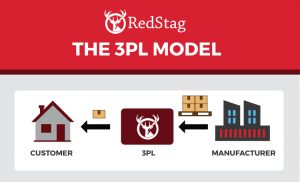 In my last post titled Big Revenues for Small Businesses, we considered the need for an organized sales function to drive revenue growth and allow the owner/entrepreneur to gain back critical time for general management activities…and possibly work/life balance improvements.
In my last post titled Big Revenues for Small Businesses, we considered the need for an organized sales function to drive revenue growth and allow the owner/entrepreneur to gain back critical time for general management activities…and possibly work/life balance improvements.
So, let’s assume you have your sales function well organized and revenues are ramping up nicely. This is good, right?
Maybe, maybe not. The following are two recent real-world examples that provide some perspective.
Sales Does Not Equal Cash
I was conferring last week with an entrepreneur whose business is over five years old. He told me he was having difficulty making payroll. From my perspective, there were no obvious or immediate solutions to his challenge. At the end of our mutual analysis of his financial situation, the owner said this:
“I just need to make some more sales to pull us out of this.”
Unfortunately, the solution was not so simple. Why? Because the owner had been having problems with accounts receivable collections. Customers were paying late. So, sales would generate more receivables. Without an improvement in collections, more sales actually could have a detrimental effect by increasing expenses while reducing cash.
A few weeks ago, I met with another entrepreneur who also had cash flow problems. His collections were not an issue. We examined his billing process, which was structure as a deposit to start work and progress payments as work was completed. We discussed specific billing modifications that would provide customer payments earlier in his projects as well as the upside and downside of making such modifications. He decided to change his billing policy, the net result being the advancement of 10% of his total revenue by 90 to 120 days. This will deliver a major improvement to his cash flow.
The point of the preceding examples is that “more sales” is not necessarily the answer to cash flow problems.
Back To Basics
While all this may sound very basic, many first-time entrepreneurs don’t realize the financial perils of failing to manage collections and cash flow. It’s a classic oversight that that revenue growth fuels cash problems — unless the owner thinks ahead, secures alternate sources of capitalization, and manages their collections properly. Even for businesses with customers who pay on time, many will see their cash shrink as they grow sales due to lags between expending resources and securing customer payments.
Cash is king. Without it, employee payrolls and other obligations cannot be met. If you are a business owner or would be entrepreneur, I hope these comments have given you some food for thought.
(147)
Report Post





